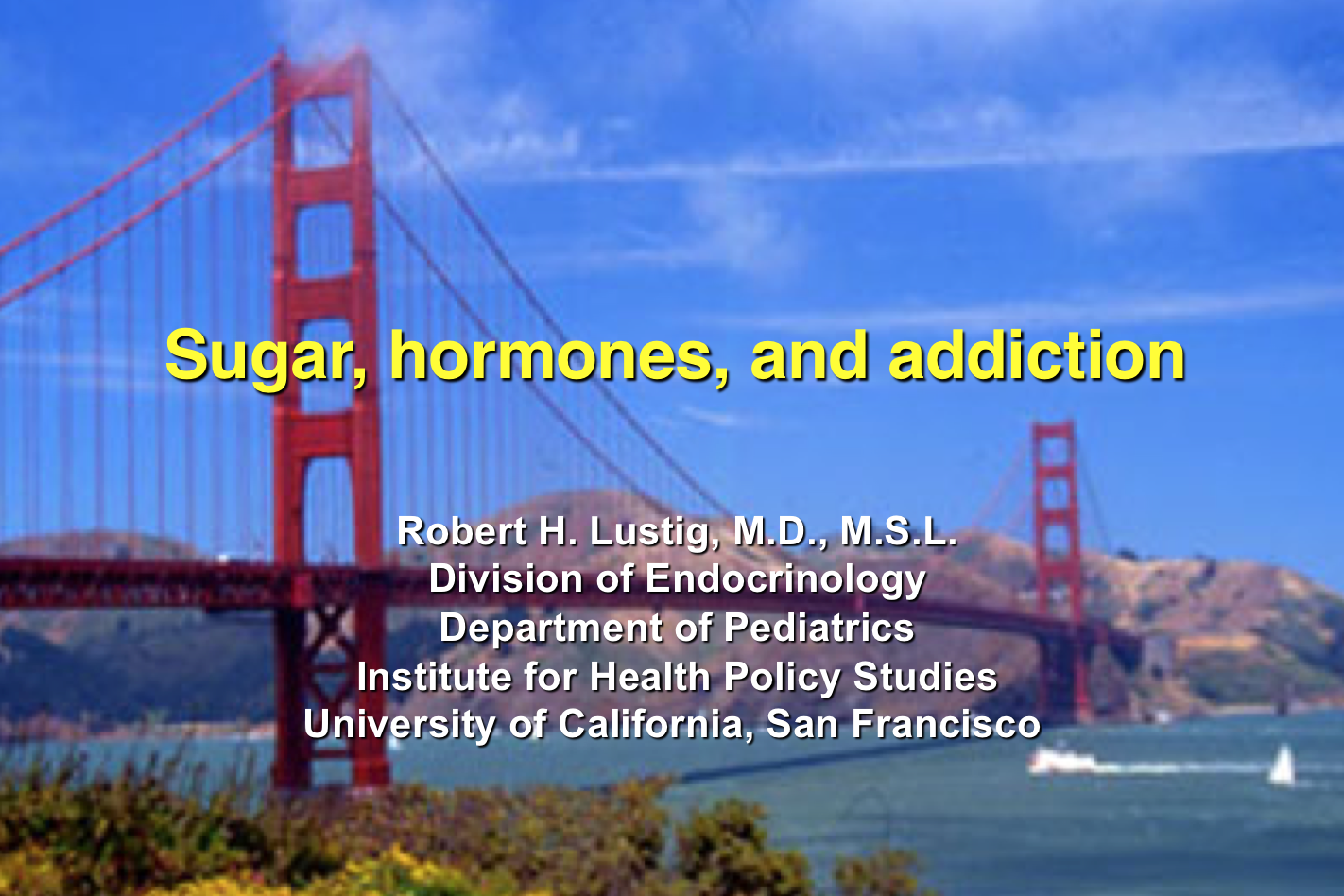Food Addiction
Certain foods — “hyperpalatable foods” — particularly processed foods that are high in sugar, salt and fat can be addictive, say scientists. Some scientists have suggest that the proliferation of such foods have fostered food addictions and may partially explain unprecedented rates of obesity and metabolic disease. Food addiction is still a controversial concept in the scientific community. But researchers find strong evidence that certain foods can trigger binging, craving and withdrawal, responses that are similar to those produced by addictive substances like alcohol, cocaine and tobacco.
Here, Dr. Lustig shares his perspectives and resources on the subject of food addiction.
Big Food’s Poisonous Propaganda Fuels Food Addiction
Treating any kind of addiction is difficult once the brain’s limbic system becomes so damaged that dopamine no longer generates reward. The best solution is to prevent addiction in the first place, and in the case of sugary processed foods, that means marketing truth to consumers. Read more.
RESOURCES
- Is fast food addictive? by Garber AK and Lustig RH
- Food firms could face litigation over neuromarketing to hijack brains by Sarah Boseley, The Guardian
- Food and Addiction: A Comprehensive Handbook by
- Food Junkies: The Truth About Food Addiction, by Vera Tarman
- Why Diets Fail by Nicole Avena
- An introduction to Food Addiction by Joan Ifland, PhD and Theresa Wright, MS RD
Originally published in the Academy of Nutrition and Dietetics (Dietetic Practice Group, Behavioral Health Nutrition) - Food Addiction 2.0 (audio recording) at the Commonwealth Club (with Michael Prager, Nicole Avena, Robert H. Lustig, Eric Stice,
Vera Ingrid Tarman, Elissa Epel, & Ashley Gearhardt) - Food Addiction: What it is and what you can do about it
- Food Addiction Research Education (FARE)
- The Extraordinary Science of Addictive Junk Food by Michael Moss
- Food Addiction Resources, provided by Dr. Joan Ifland
- The Food Addiction Institute (FAI) is an independent, non-profit organization whose mission is to support food addicts.
- What is the evidence for “Food Addiction?” A Systematic Review
- List of top 76 books on Food Addiction (I don’t endorse this, just an FYI)
- Food Addicts in Recovery Anonymous (FA)
- Food addiction as a new piece of the obesity framework
- How Prevalent is “Food Addiction”?
- Which Foods May Be Addictive? The Roles of Processing, Fat Content, and Glycemic Load
Want to understand the fundamentals of addiction in our society?
Then read Dr. Lustig’s book The Hacking of the American Mind.
Here is a half-hour interview of Dr. Lustig about his book and the key topics in it.
And, here, a discussion with Dr. Joan Ifland, Author of Processed Food Addiction, Foundations, Assessment and Recovery:
Three talks on Food Addiction
Nicole Avena (Science on Food Addiction)
Dr. Vera Tarman (No silver bullet; meds in obesity)
Dr. Robert Lustig (Sugar, hormones, and addiction)
Dr. Elissa Epel’s video: Science Behind Optimal Metabolic Health and Nutrition: Adding Years to Your Life and Life to Your Years.
An increasing number of scientific studies suggest that food, like drugs or alcohol, can have addictive qualities. Food addiction is a disease which causes loss of control over the ability to stop eating certain foods. Three people share their personal experiences and how they came through.


